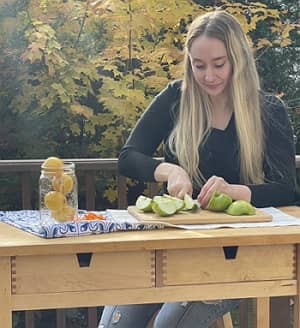Discover how to support your immune health through proper nutrition. Explore immune-boosting foods rich in Vitamin C, zinc, probiotics, and more for optimal wellness.
With the cold and flu season upon us, there’s a lot of talk about natural ways to boost your immune system. Many people turn to quick fixes like energy shots or Vitamin C supplements, but there’s a simpler and more sustainable approach — nourishing your body with immune-boosting foods.
Instead of reaching for a 5-hour energy shot, why not just eat an orange?
Why Should You Focus on Immune-Boosting Foods?
While there’s no single food or nutrient that will magically enhance your immune system, a balanced diet filled with a variety of whole grains, fruits, and vegetables is key to supporting your immune health. Proper nutrition ensures your body gets the essential vitamins and minerals needed for optimal function, including a strong immune response.
So what nutrients and their foods can we be including in our diet that will support our immune health?
Top Nutrients and Foods to Support Immune Health
- Vitamin C
Vitamin C is perhaps the most well-known nutrient for supporting the immune system. It helps strengthen both the innate and adaptive immune systems. Great sources of vitamin C include citrus fruits, red and green peppers, broccoli, potatoes, strawberries, and brussels sprouts. Check out this guide on Harvard Health for more information on how to boost your immunity. - Protein
Protein plays a vital role in recovery and building strength, making it another key nutrient for immune health. Incorporate protein-rich foods like eggs, meat, poultry, cheese, and soy into your diet. For plant-based options, beans and legumes are excellent sources of protein that also provide fiber and other micronutrients. - Vitamin E
Vitamin E is an antioxidant that helps fight free radicals, supporting immune function. Since it is fat-soluble, it’s easily absorbed by the body. Foods high in Vitamin E include wheat germ, sunflower seeds, almonds, peanut butter, and collard greens. Learn more about the role of antioxidants from National Institutes of Health. - Zinc
Zinc is essential for immune function and wound healing. Foods rich in zinc include meat, poultry, seafood, whole grains, dairy, and fortified cereals. Studies show zinc helps regulate immune responses and is critical for cell repair. For a deeper dive into zinc’s benefits, check out Mayo Clinic’s resource. - Probiotics
Probiotics, found in fermented foods, promote gut health by supporting healthy bacteria that contribute to a strong immune system. Probiotic-rich foods like tempeh, kefir, yogurt, sauerkraut, and miso pair well with high-fiber prebiotic foods to maintain a healthy gut microbiome.
While incorporating immune-boosting foods into your diet is essential, it’s equally important to maintain a well-rounded lifestyle. This includes regular exercise, adequate sleep, and proper hydration. Don’t forget the importance of medical care — speak with your doctor about vaccines and other preventative measures to safeguard your health.
Eating a variety of nutrient-dense foods is the best way to support your immune health. Focus on including Vitamin C, zinc, probiotics, and other immune-boosting nutrients in your diet for a strong, resilient immune system. By making thoughtful choices in your meals, you’re not only protecting your health but also promoting a sustainable, whole-foods-based lifestyle.
To learn more about what Dining With Nature offers for nutrition care – hit the Explore The DWN Programs button below or take a look at our Services page.


